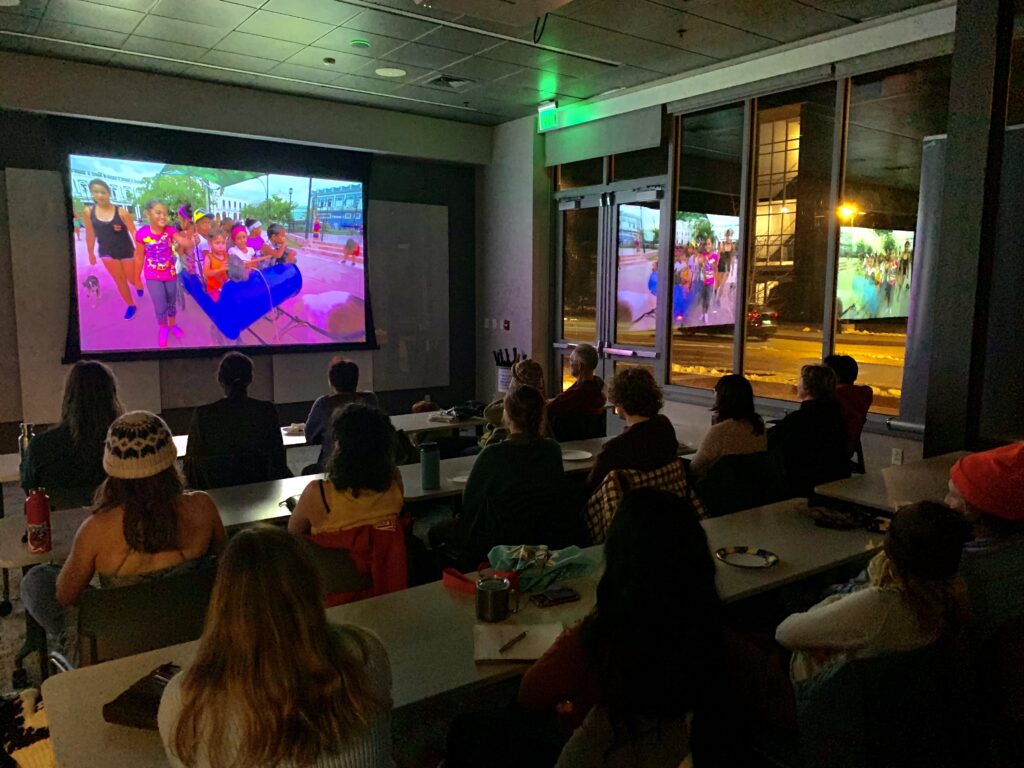What’s the connection among happiness, women’s empowerment, and sustainable living? This week a UMaine course in permaculture hosted a lively discussion on this question with the director of an award-winning documentary.
December 3nd at the Fernald Center saw a packed audience attend a screening of Saving Walden’s World, a documentary that examines the correlation between happiness, connection to the land, and women’s empowerment around the world. The film by Maine native Jim Merkel has won over a dozen awards for its moving portrayal of communities that have put people over profit and local leaders–almost all women–who led the charge. CBS affiliate WABI interviewed Merkel about his upcoming discussion with the UMaine class.
The showing was organized in conjunction with a new course, PAX 590, focused on permaculture, a discipline that asks how designers can build regenerative systems based on principles derived from nature. The course emerged from a year long Honors project, the “Permaculture Discussion Group,” by undergraduate Belu Katz, and guided by professors Joline Blais, Anthony Sutton and Melissa Ladenheim and hosted by Terrell House Permaculture Living and Learning Center in 2023-2024.
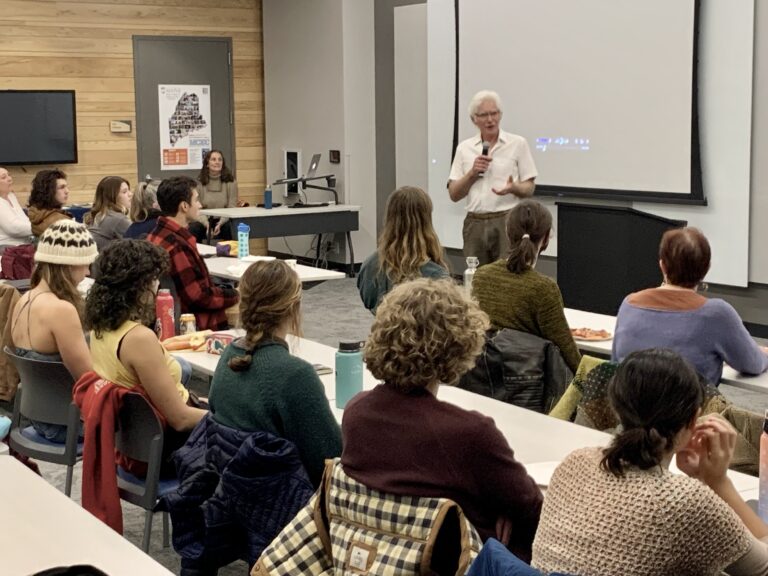
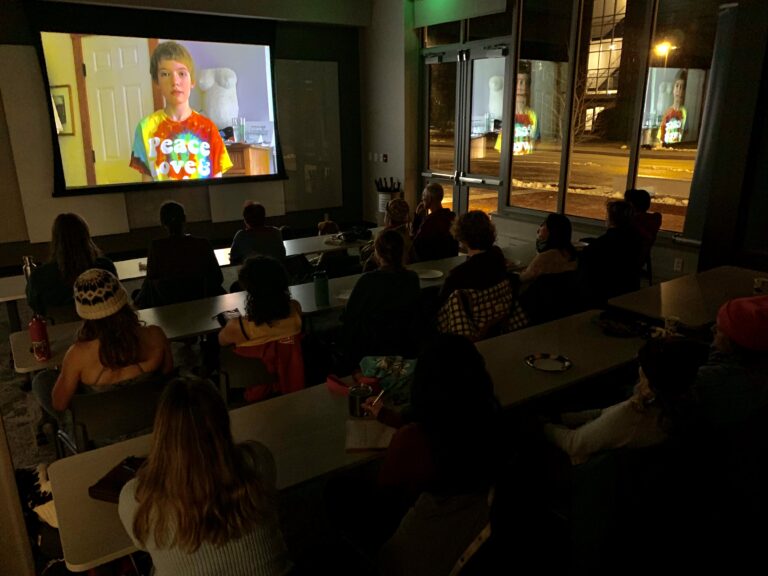
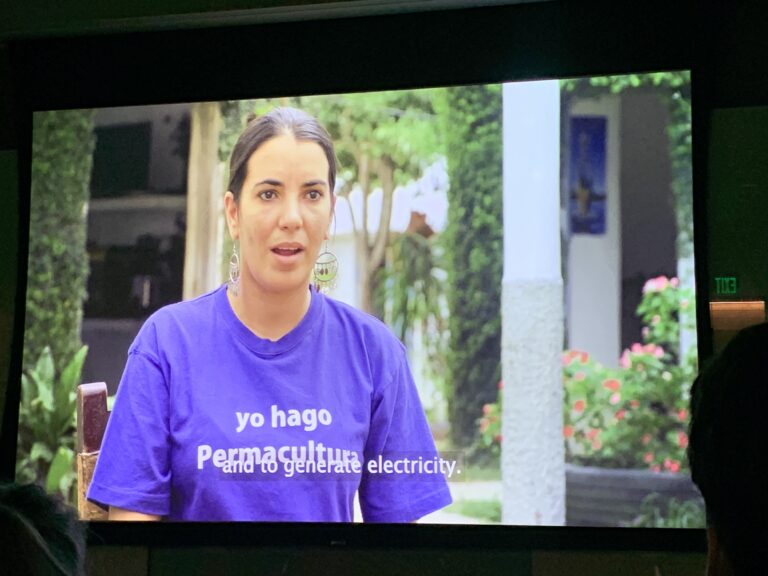
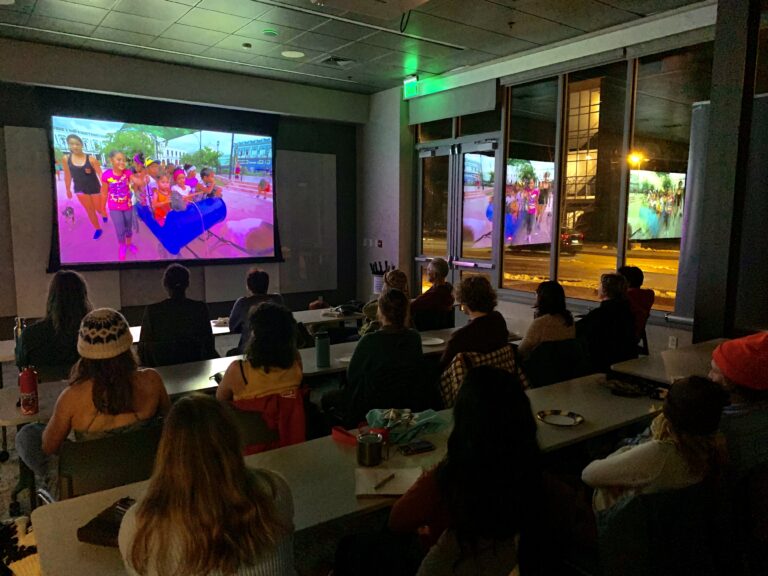
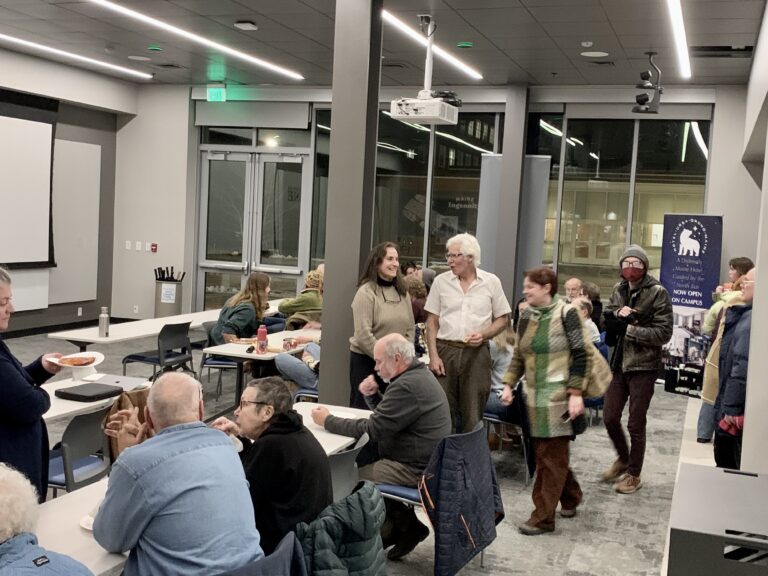
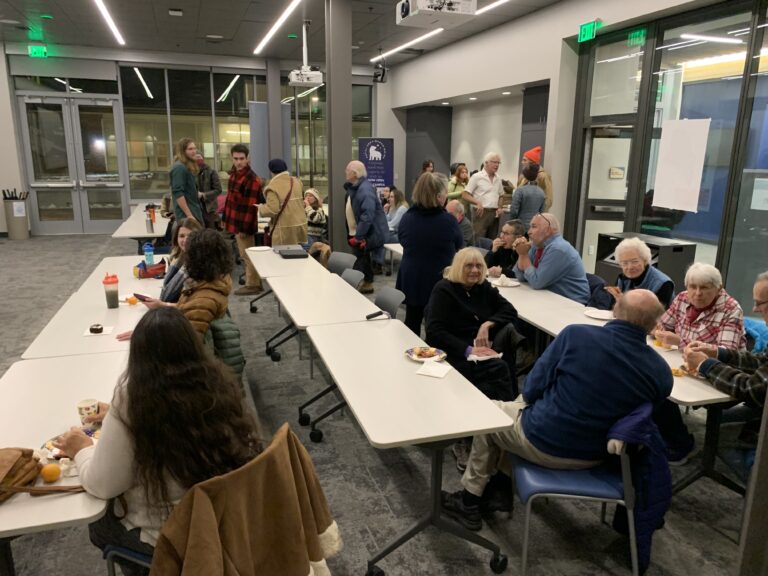
Many of the film’s themes overlap with the their main permaculture ethics: Earth Care, People Care, and Fair Share. Permaculture designers apply these ethics and a related set of 12 principles to generate locally-based practices that respect and regenerate ecosystems, on scales from backyard gardens to online networks and local currencies.
Examples from the film include applying herbal medicine to improve women’s health in Cuba and establishing the Kudumbashree community lending bank in Kerala, India. During the discussion accompanying the film, Merkel offered his own example of “voluntary simplicity” as hope for young people wondering how they can afford to live in an increasingly costly world, quipping “Consciousness grows faster than inflation.”
UMaine’s permaculture course was offered by New Media faculty Joline Blais, who co-taught a hands on permaculture course at UMaine in 2008 with well-known Australian permaculture teachers Julia and Charles Yelton. The current course includes students from backgrounds as diverse as mechanical engineering, anthropology, and math. Students brought innovative materials to the class including a UMaine Re-wilded campus in Minecraft, Climate Survivor stories, Solarpunk videos, Entomology lessons, Aroostook potato farmer encounters, published PFAS illustrations, and the UMaine Greens project. This semester’s course is at the graduate level, but discussions are underway to offer an undergraduate Honors version in the future and also exploring a permaculture minor at UMaine to enable students to link to related courses and build on the transformative paradigm of regenerative design.

